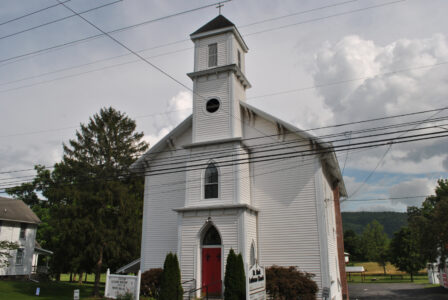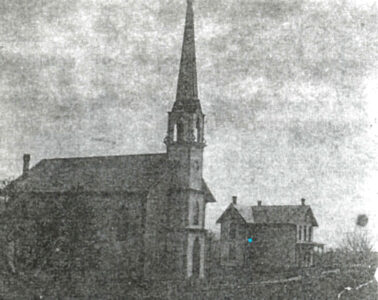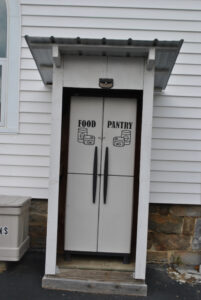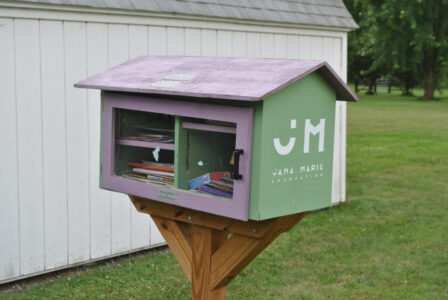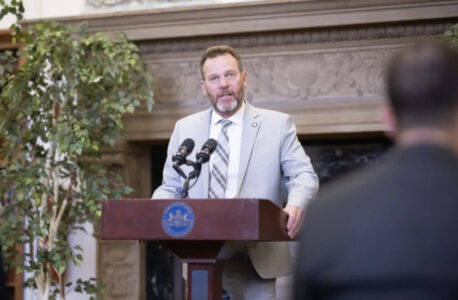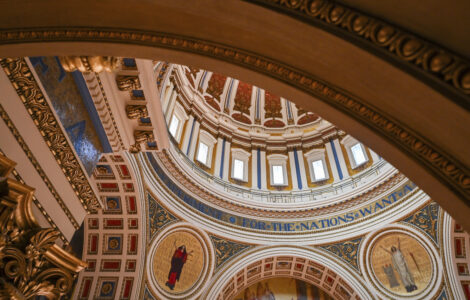‘Beacon in this valley’: St. Mark’s, Nittany Valley’s oldest church, celebrates 200 years as Lutheran congregation
- HUNTER SMITH/THE EXPRESS St. Mark’a Lutheran Church in Snydertown is pictured recently. The church is celebrating 200 years in Nittany Valley.
- PHOTO PROVIDED Pictured above is St. Mark’s Lutheran Church, located in Snydertown, sometime in 1890.
- HUNTER SMITH/THE EXPRESS The food pantry at St. Mark’s Lutheran Church is pictured above.
- HUNTER SMITH/THE EXPRESS St. Mark Lutheran Church’s little library is pictured above.
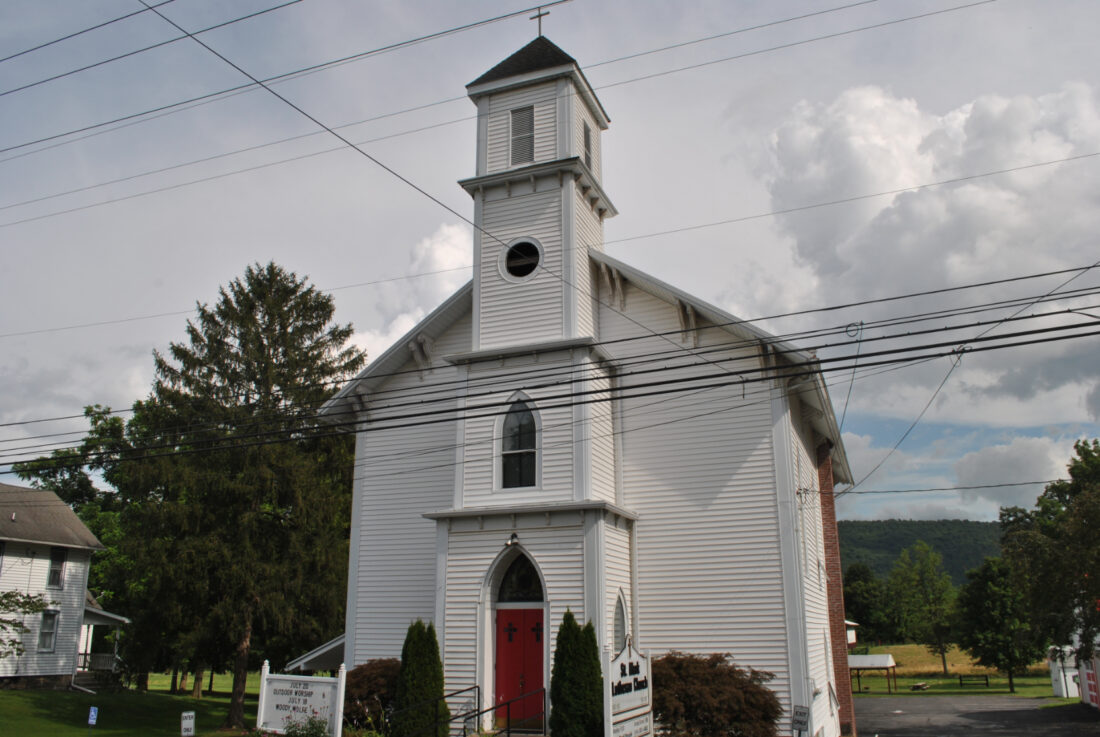
HUNTER SMITH/THE EXPRESS St. Mark’a Lutheran Church in Snydertown is pictured recently. The church is celebrating 200 years in Nittany Valley.
SNYDERTOWN — “As the spirit of ’76 is gaining momentum in our national life, the Spirit of God continues to empower the life of his church in Snydertown,” wrote Pastor Daniel Reitz in the foreword to the 150 year celebration of St. Mark’s Lutheran Church in Snydertown.
Fifty years later, as the nation once again feels the stirrings of that revolutionary spirit, St. Mark’s is celebrating 200 years as a Lutheran congregation — still empowered by the Holy Spirit, and still shaping lives in the heart of its community.
The Past
With a history nearly as old as the nation itself, the church traces its roots to the earliest days of European settlement in Nittany Valley.
According to the church’s records, the forests of Nittany Valley were burned clear in 1765, opening the land to settlement. In the following decades, colonists — many of them Pennsylvania Germans of the Reformed and Lutheran faiths — came from Union County, while the land’s primarily Presbyterian, Scotch-Irish settlers traversed the West Branch of the Susquehanna to claim their place in the valley. Within a century, most of the Scotch-Irish had either moved west or died out, leaving much of the land and many of the homes in the hands of the Lutherans and Reformed.
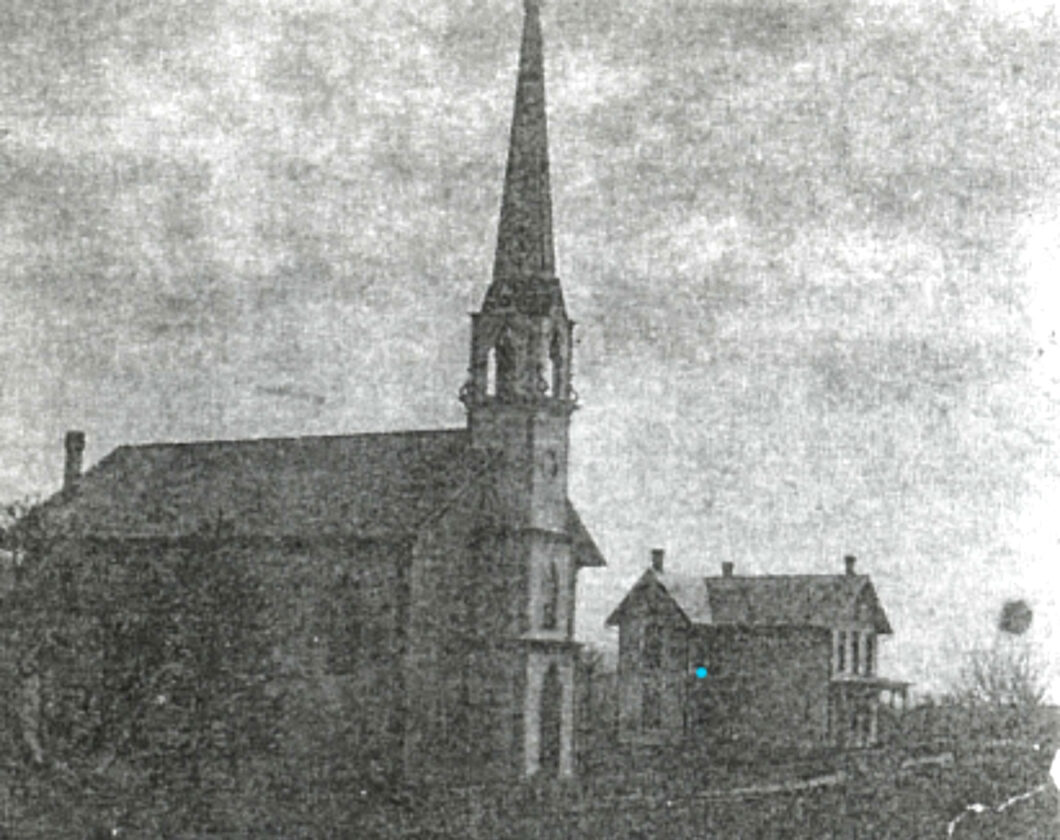
PHOTO PROVIDED Pictured above is St. Mark’s Lutheran Church, located in Snydertown, sometime in 1890.
In 1812, the valley’s first Reformed pastor, the Rev. Henry Rossman, began preaching in Snydertown. As was common in those early years, the Reformed and Lutheran congregations worshiped together, leading many to believe the Lutheran community began to organize around the same time. The early Lutherans are believed to have been led by the Rev. Albert Ilgen, a German immigrant who lived in Aaronsburg.
In 1824, the congregation began constructing the valley’s first house of worship, completing it four years later in 1828. The log structure stood on land donated by John Snyder, Sr., the community’s namesake. It was shared by both congregations, who worshiped separately. The church was jointly governed by members of both faiths, with each pastor presiding as needed. The building also served as their school through 1844.
The Lutheran congregation formally organized itself in 1825 during the church’s construction. This year marks the 200th anniversary of that milestone. Church records suggest the original congregation may have faced challenges, leading to a possible reorganization around this time.
“I don’t know that there is much about why,” said David Pencek, St. Mark’s present pastor. “Sometimes churches just decide to go their separate ways.”
“What we’re celebrating this year,” Pencek explained, “is 1825, when St. Mark separated from the Reformed and became a Lutheran Congregation.”
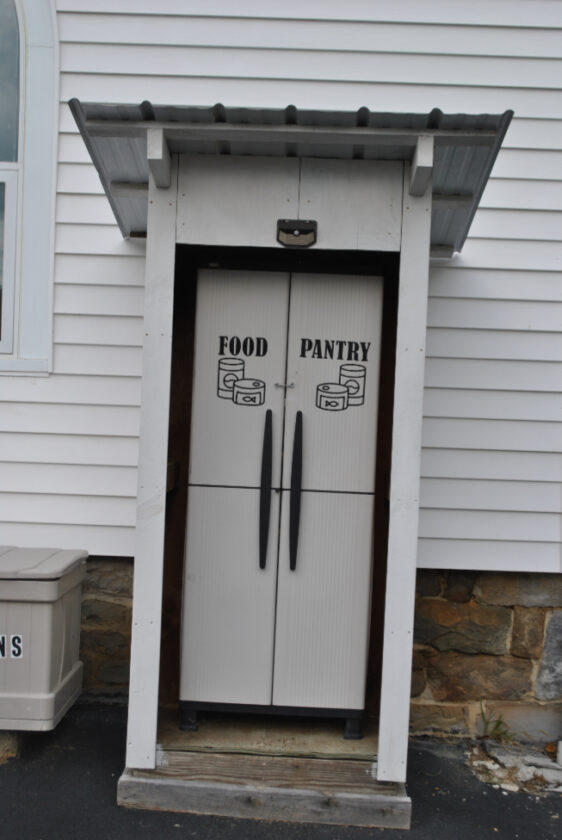
HUNTER SMITH/THE EXPRESS The food pantry at St. Mark’s Lutheran Church is pictured above.
The name John Beck appears in the record as one of the first Lutheran Elders of the church at that time. Today, his great-great-grandson, Bill Beck, 85, now serves as the church’s resident historian and is one of the last direct descendants of the colonists who helped establish it.
For Beck, the history he preserves is also his own — and his ancestors’ contributions still echo through the church’s story.
A union of Holy Communion service of the two congregations was held before leaving the old log church in January 1845 and again for the dedication of the new building on May 25, 1845. The new church was dedicated on land conveyed by John Beck to Lutheran and Reformed trustees for the church and cemetery.
According to Beck, “that church reportedly seated up to 300 people.”
Before 1884, the two congregations separated, dissolving the Union Church arrangement. The “Trinity Reformed” group sold their rights to St. Mark’s Evangelical Lutheran and moved their congregation to Hublersburg, Pa. The separation was described as peaceful and satisfactory in a 1936 rededication souvenir.
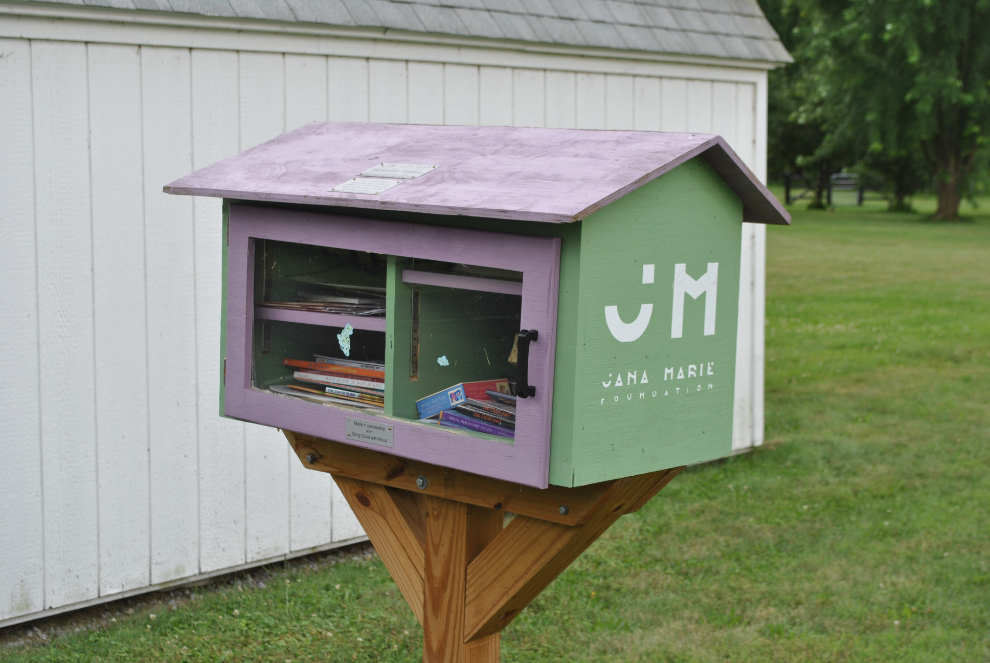
HUNTER SMITH/THE EXPRESS St. Mark Lutheran Church’s little library is pictured above.
“When that congregation moved, it left 37 active Lutheran members in this huge church,” Beck said.
They continued worshiping in the former Union Church building until 1884, when the current St. Mark’s Lutheran Church — a two-story frame structure — was built and dedicated at a cost of $4,500.
From the remaining 37 members, the congregation grew steadily, especially from the Great Depression through World War II. According to Beck, the pastor during those years, Paul Keller, “was responsible for leading so many advancements here — including the church pews that we still sit on.”
As it expanded, the church added a basement for Sunday School and purchased over an acre of land behind the building for recreation.
“My grandfather (William Henry Beck) and his two brothers (Benjamin Franklin Beck and Martin Luther Beck) were very involved in building the current church that we worship in,” he said.
The Present
Although in 1976, St. Mark’s Supervising Pastor Daniel Reitz described its history as “a hundred fifty years of struggle for survival (organizationally) and little in the way of mission and ministry,” today the church is more active in outreach than ever.
“Even when it was without a pastor for a few years, it just kept doing things,” said the Rev. David Pencek, who came to preach at St. Mark’s following that period.
He credits the church’s Social Action Committee, which is dedicated to supporting the surrounding communities.
“When there is need, they want to help,” he said.
St. Mark’s plays an active role in serving its surrounding communities, thanks to its location between Clinton and Centre counties. The church frequently partners with local organizations to support survivors of domestic and sexual violence, raise awareness around mental health and assist children and families in need. From JAM sessions and concerts to food distributions and quiet acts of care at the local elementary school, St. Mark’s is focused on making sure its neighbors feel seen, supported and included.
According to parishioner Megan Douty, “St. Mark Lutheran Church may not be the biggest church in the area, but it has a strong and dedicated congregation that supports members and nonmembers alike.”
Though she only joined the church in 2015, she says you become part of the St. Mark family the moment you walk through the door.
“Our congregation is not just a group of people who spend an hour together each Sunday morning. We are a family. We rejoice in the good times together, and we cry together during the most difficult times. The care we have for each other is evident through prayer chains, meal deliveries, care packages, cards and constant joking and laughter. The love we have for people we have never even met is unmatched,” she said.
According to Douty, the congregation sings “Happy Birthday” to each member on the closest Sunday to their birthday, and it’s not uncommon for her children to find a new pack of stickers on their pew.
“You know your children are well loved when you show up to church and there are new packs of stickers on your pew or you see members outside of church and they are still wearing their sticker!” she said.
“I’m proud of everything that the church does to help our community. From creating a free food pantry, to purchasing glasses for a child in need, to collecting donations for a family who suffered through a fire. The church and its members never stop,” Douty said.
“Through our faith, we just continue to look for the joy in worshiping God and want to share God’s love with the community,” said Pastor David. “We try to be a beacon in this valley.”
As part of its 200th anniversary celebration, St. Mark’s will host a private dinner on July 26 at the Nittany Valley Fire Hall, followed by a special worship service on Sunday featuring former pastors.
“We’re just planning to have a good time,” Pencek said.
The celebration is a reminder of how far the church has come — and where it’s headed next.
In the words of Pastor Reitz, “We do not live in the past, but draw from the past; thank God for the past; and with God, move forward in Hope!”

